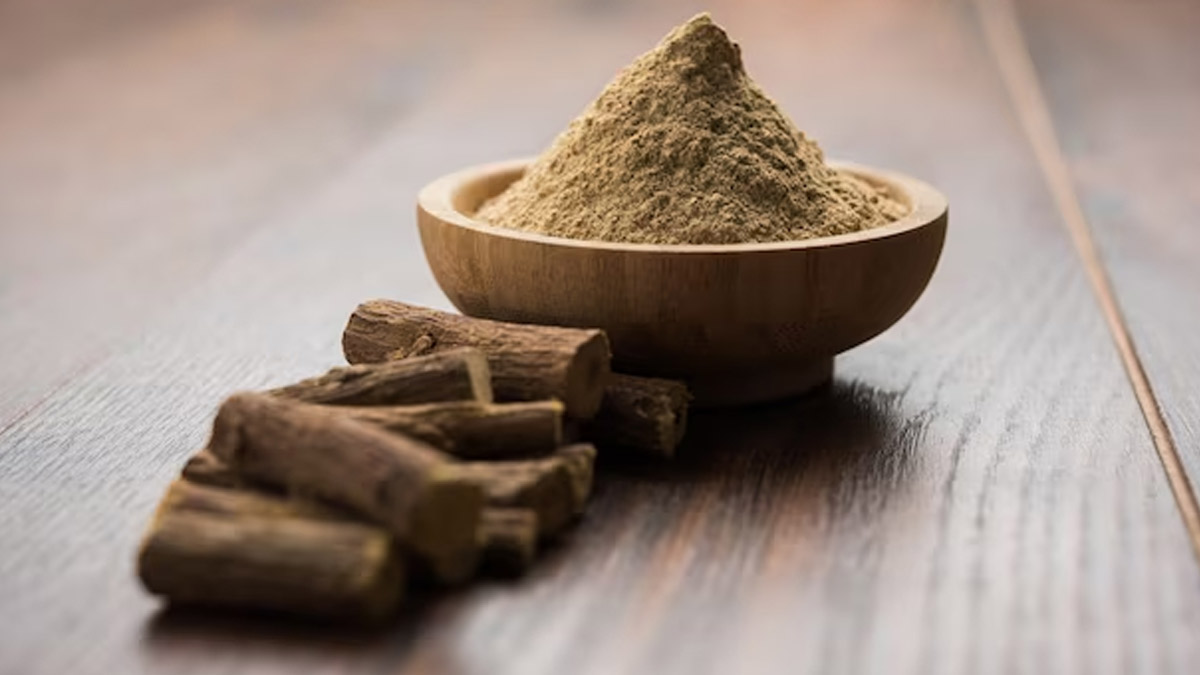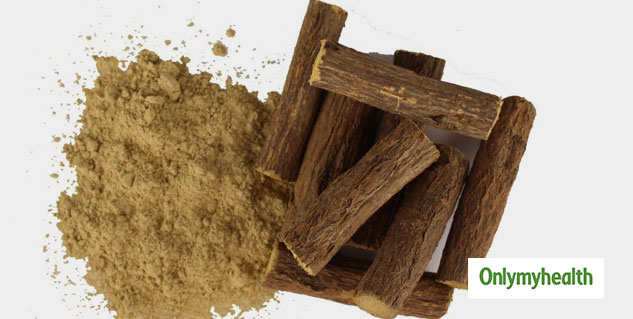
In the realm of natural remedies, Mulethi, also known as Licorice Root, emerges as a potent herb with a rich history of medicinal use. Derived from the Glycyrrhiza glabra plant, Mulethi has been revered for its therapeutic properties for centuries.
Table of Content:-
Immune Boosting Power
Mulethi is a treasure trove of bioactive compounds, including glycyrrhizin, flavonoids, and saponins, which contribute to its immune-boosting capabilities. During seasonal changes, when our bodies are more susceptible to infections, Mulethi acts as a shield, enhancing the immune system's ability to fend off common ailments.
Respiratory Relief
The herb's anti-inflammatory and expectorant properties make it a go-to remedy for respiratory issues. Mulethi helps soothe irritated mucous membranes, making it effective in alleviating coughs, colds, and congestion. It is particularly beneficial during seasonal transitions when respiratory infections are prevalent.
Gastric Guardian
Mulethi's demulcent nature lends itself to soothing gastrointestinal discomfort. It forms a protective layer on the stomach lining, reducing acidity and promoting digestive health. As seasons shift, dietary habits may fluctuate, and Mulethi can provide relief from indigestion and related issues.
Also Read: Is There A Link Between Poor Food Choices, Mental Health, and Diabetes Risk: Know Here
Stress Buster
Beyond physical well-being, Mulethi also plays a role in mental health. The herb exhibits adaptogenic properties, helping the body cope with stress. As seasonal changes can sometimes bring about increased stress levels, incorporating Mulethi into one's routine may contribute to a calmer state of mind.

How to Incorporate Mulethi?
Mulethi can be consumed in various forms, including as a tea, decoction, or even as a supplement. Licorice tea is a popular choice, offering a delightful and therapeutic way to harness the herb's benefits. However, it's essential to consume Mulethi in moderation, as excessive intake may lead to potential side effects.
Word of Caution
While Mulethi is generally safe for most individuals, those with certain medical conditions, such as hypertension or kidney issues, should exercise caution and consult a healthcare professional before incorporating it into their routine.
Bottomline
Mulethi stands as a natural ally in our quest for well-being during seasonal transitions. Its immune-boosting, respiratory, digestive, and stress-relieving properties make it a versatile herb that has been trusted for generations. Embracing the healing power of Mulethi can be a gentle and effective way to navigate the challenges that seasonal changes may bring to our health.
Also watch this video
How we keep this article up to date:
We work with experts and keep a close eye on the latest in health and wellness. Whenever there is a new research or helpful information, we update our articles with accurate and useful advice.
Current Version
